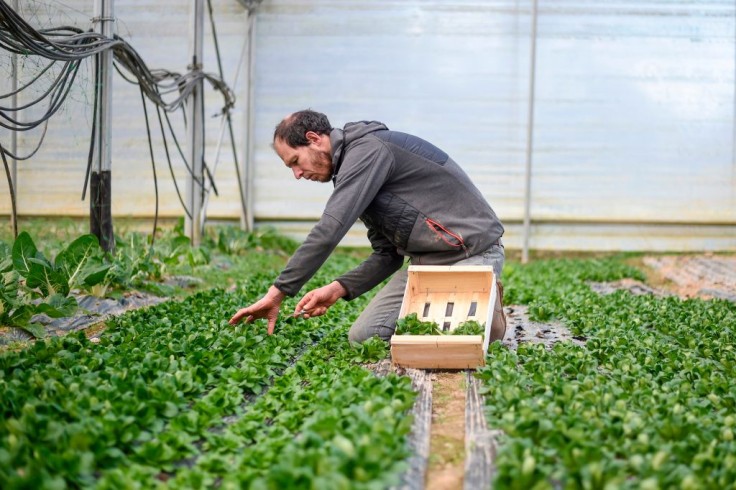
A woman's method of washing vegetables shocked the internet when she confessed that she uses the washing machine to do the job.
In a Tiktok video that Ashley Echols posted, she explained that handwashing large amounts of vegetables became quite daunting, so she thought of a solution: utilize her washing machine.
The viral post, which earned more than 643,000 views, showed her placing her home-grown kale in the drum of the washing machine before putting it on a "delicates" spin. After, it showed that the vegetables were still intact but freshly washed.
She explained that it was just an idea she had, as she was really getting annoyed with having to wash it. She harvested the kales all at once, so she thought about putting them in the washing machine for convenience, Newsweek reports.
Echols said she did a wash cycle first using vinegar before adding kale and carrots and washed it with more vinegar. She admitted that she washed hand towels in the machine with bleach before washing the veggies.
Tiktok users' reaction
Not all commenters were impressed with Echol's methods. A person wrote that this was why " I don't eat at anyone's house." Another commented, "think about all the dirty clothes that had been placed in the washing machine." A fourth one said that the greens could damage the machine, and the practice could transfer the bacteria to the produce, per National World.
However, others claimed that they had used Echol's method of washing dishes without any issues. One person said that his dad did the practice for years. Another said that she does not understand the negative reaction as Echols washed the washer before and after using it. She compared the practice to using spoons that were in other people's mouths, like in a restaurant.
Washing machine for vegetables
Unknown to Echols, many small farmers in the U.S. dry their fresh vegetables using the average, ordinary washing machine. However, farmers use a retrofitted washing machine. Its spin cycle wicks the water off the greens to dry them and keep them fresher much longer. The practice automated the farmer's drying process without buying the expensive, commercial-grade spinner.
However, even scientists wonder if the practice is safe. According to Amanda Kinchla, a UMass Amherst extension associate professor of food science, the practice is common among small producers of greens, and there are no regulations against this. There is also no data on its possible risks, according to the University of Massachusetts.
Kinchla and UMass Amherst food science colleagues Lynne McLandsborough and Matthew Moore are now studying and addressing the microbial safety risks of processing leafy greens in washing machines.
The UMass Amherst team is working with the University of Vermont Extension, and they conduct workshops for farmers to follow a hygienic design to convert washing machines into safe, greens spinners. Andrew Chamberlin, UVM Extension agricultural engineering technician, said that bacteria and grime might accumulate if farmers do not know how to spin the greens and clean the machines properly.
One of the safety practices that Chamberlin explained was placing greens in baskets that fit inside the washing machine for lesser contact with the machine, reducing the risk of contamination.
Related Article: 5 Alternatives to Using Sponge for Washing Dishes